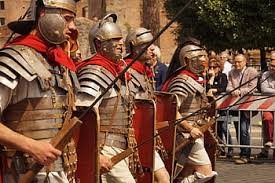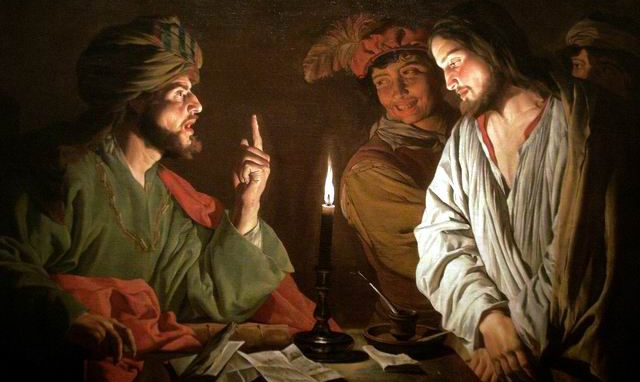 Sacrifice is an economic activity. For example, if you sacrifice a bit of your paycheque to CPP, in return for that sacrifice; when you are 65, you receive the Canada Pension.
Sacrifice is an economic activity. For example, if you sacrifice a bit of your paycheque to CPP, in return for that sacrifice; when you are 65, you receive the Canada Pension.
Now, God did not crucify Jesus. We (humanity) crucified him. Caiaphas, the high priest, says in Luke's Gospel. "it is better that this one man (Jesus) should die than the nation perish.” (He did not want to trigger a police action by the Romans).
That Passover week, Caiaphas used the body and blood of Jesus to appease the mob and purchase the political peace, but unbeknown to Caiaphas, what was actually purchased was the "peace that passes all understanding". (Philippians 4:7)
 Like the story of Joseph, who was sold into slavery by his brothers, in Genesis 50:19-20, God took a human activity that was meant for evil, in this case the expedient political / religious sacrifice of Jesus, and repurposed it for our good. He raised Jesus from the dead, both as an "example" of Love triumphing over evil and as the "judgment" that evil does not have the last word. The last word belongs to Him who is both Alpha and Omega. (Revelation 21:6) The mystery of our salvation is that God transformed our cruel rejection of Jesus into the sacrifice of our reconciliation. (Colossians 1:20) Nothing is impossible with God.
Like the story of Joseph, who was sold into slavery by his brothers, in Genesis 50:19-20, God took a human activity that was meant for evil, in this case the expedient political / religious sacrifice of Jesus, and repurposed it for our good. He raised Jesus from the dead, both as an "example" of Love triumphing over evil and as the "judgment" that evil does not have the last word. The last word belongs to Him who is both Alpha and Omega. (Revelation 21:6) The mystery of our salvation is that God transformed our cruel rejection of Jesus into the sacrifice of our reconciliation. (Colossians 1:20) Nothing is impossible with God.
Consider the petition "deliver us from evil", in the Lord's Prayer. Jesus was not delivered from the "suffering of death" but from the "evil of death". The "evil of death" wanted Jesus separated from the love of the Father, but Jesus was raised from dead and into the glory of the Father. (1 Peter 1:21)
Likewise we may not be delivered from the "sufferings" of this life, but as brothers and sisters in Christ (joint heirs) we are promised to be delivered from the evil of those sufferings, as Jesus was, because we will share in his inheritance. (Romans 8:17)
 Christian sacrifice can get conflated with primitive sacrifice where, for example, a Pagan god demands the sacrifice of an infant for the return on investment of a plentiful harvest. Paul, in Romans 12:1, challenges us, as Christians, to be "living sacrifices", not dead ones. If we "invest" ourselves in caritas, the love of God and our neighbour, that return on investment is beyond measure, it’s eternal.
Christian sacrifice can get conflated with primitive sacrifice where, for example, a Pagan god demands the sacrifice of an infant for the return on investment of a plentiful harvest. Paul, in Romans 12:1, challenges us, as Christians, to be "living sacrifices", not dead ones. If we "invest" ourselves in caritas, the love of God and our neighbour, that return on investment is beyond measure, it’s eternal.
To that end, at each Sacrifice of the Eucharist, we are offered the opportunity to sacrificially lay our lives on the line.






